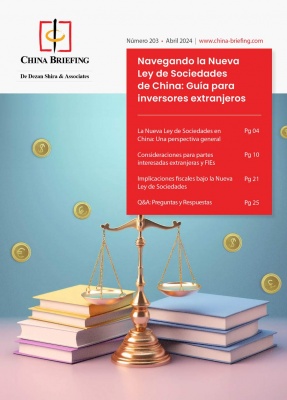Keeping China’s Forex Safe: The State Administration of Foreign Exchange
July 23 – Long held at an artificially low rate by the Chinese government, the RMB has been allowed to slowing appreciate in recent years, helping to ease a growing trade imbalance with the United States and the EU. The rising value is just one example of how Beijing has maneuvered tools in place to deal with the macro economic fall out from China’s surging economy. In a time of rising inflation and calls from the West to allow the currency to appreciate faster, one government department’s involvement with China’s foreign exchange reserves places it at the center of China’s future economic outlook. The State Administration of Foreign Exchange’s main task is to draft rules and regulations that govern foreign exchange market activities in China and manage the country’s foreign exchange reserves.
SAFE was founded in Beijing in March, 1979, by the State Council, and since August, 1982, it has been governed by the state central bank, the People’s Bank of China. SAFE is headquartered in Beijing with an additional 36 administrative offices and 298 central sub-branches located throughout the country. SAFE also has offices in Hong Kong, Singapore, London and New York.
Most business people in China have heard of SAFE, and if they haven’t personally dealt with them, their account surely has. Several Chinese audit requirements necessitate submission of documents to the authority: an Audited Financial Report, a Foreign Exchange Audit Report, and an Annual Report. These reports need to be prepared and submitted to seven different government departments, namely the Bureau of Foreign Trade and Economic Co-operation, the Financial Bureau, Customs and Excise, the State Administration of Taxation, the local tax bureau, the Administration of Industry and Commerce, and SAFE.
Besides these annual legal requirements, SAFE plays also an important role when a foreign-invested enterprise is setting up. If an FIE needs to open a foreign settlement account—most companies need such an account to receive foreign currency—then an FIE must register the details with SAFE, regardless if the FIE is a representative office, a FICE or a WFOE. Registration takes about one to two days if it is handled by a professional firm. Only when this registration is completed can the invested company set up bank accounts in their chosen bank.
At Dezan Shira & Associates we deal on a regular basis with client questions concerning new SAFE regulations. As matter of fact, SAFE contributes quite frequently to the ever changing regulatory environment in China. The latest being the new SAFE regulations on July 14, 2008 on the registration of external loans.
Export and import
If your business is related to export and import you will always be in relation with the SAFE. In a typical export scenario a company based in China will export goods overseas and the money should be paid and received in a bank account in China. When this happens, the client’s bank will then inform SAFE about the money transfer and SAFE will then authorize the bank whether the money can be released to the foreign bank. This decision is based on the e-customs system, computerized network system which links SAFE, Customs, the foreign trade department and the Administration of Industry and Commerce together. SAFE has the ability to audit all exports and imports through this computerized system. All the goods which have left China and all the payments received can be traced. For the import a similar system is in place. Once the money is remitted out and the FIE has paid the goods, the SAFE will have the possibility to check if the goods were delivered in China or not.
FIEs and SAFE issues
SAFE is as well the eye of the needle to repatriate the profits of an FIE. Usually this is done after the annual audit and the tax clearance. Once all the relevant taxes are paid, the FIE can apply for profit repatriation. After approval, the investor can remit its profits via its bank, unless the SAFE disapprove.
There are also unpleasant moments when an FIE has to deal with SAFE. From our experience, most of the time the problems are linked to registered capital issues. Some foreign-invested enterprises try to keep their profits outside of China and have declared a very low registered capital amount. Most of the time, the foreign investor doesn’t realize that he is under capitalized. The cash accounts are kept afloat via technical agreements and cash in advance payments for goods which will be delivered in the future. All this is in an ideal world and keeps the FIE financially viable.
However, when SAFE inspects the enterprise the problem appears. As described above, it is quite simple for SAFE to check the advance payments and services invoiced against the value of the exported goods which have left China and the supplied services. According to Chinese foreign exchange regulations, money received from aboard should not exceed 110 percent of the export amount. If the advanced payments and the actual exported goods reach a certain “unhealthy” quota, SAFE will seek appropriate action.
The foreign investor normally will not be always being aware when their company is dealing with SAFE because, most likely, the bank will serve as a buffer. However, when SAFE directly approaches the FIE for an inspection or a verification, the FIE should pay attention to the details.
If you are investigated by SAFE, or if you require additional information please contact Dezan Shira & Associates info@dezshira.com.
- Previous Article Billing Issues for SME’s with Hong Kong Holding Companies
- Next Article China’s Valuation Standards System
























